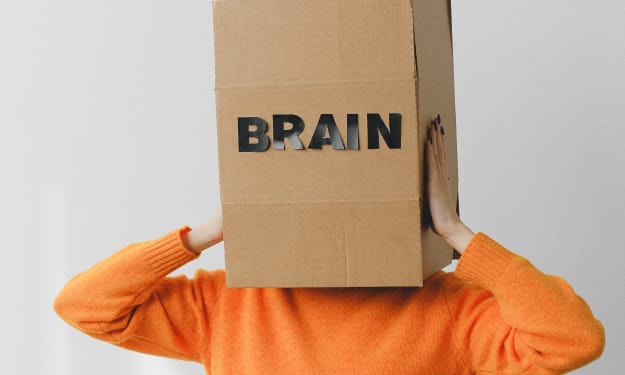The Link Between Sleep and Mental Health: 5 Strategies for Better ZZZs
Get Some Rest

Sleep is a fundamental aspect of our overall well-being, and its impact on mental health cannot be overstated. Adequate sleep is essential for maintaining optimal cognitive function, emotional regulation, and overall mental well-being. Unfortunately, many individuals struggle with sleep-related issues, which can negatively affect their mental health. In this article, we will explore the link between sleep and mental health and provide five strategies for better sleep.
Establish a Consistent Sleep Schedule
One of the most effective strategies for improving sleep quality is to establish a consistent sleep schedule. Our bodies have an internal clock, known as the circadian rhythm, which regulates sleep-wake cycles. Going to bed and waking up at the same time every day, even on weekends, helps regulate this internal clock and promotes better sleep. Consistency trains the body to recognize when it's time to wind down and when it's time to wake up, leading to improved sleep quality and mental well-being.
Create a Relaxing Bedtime Routine
Engaging in a relaxing bedtime routine can signal to your body and mind that it's time to unwind and prepare for sleep. This routine should include activities that promote relaxation, such as reading a book, taking a warm bath, or practicing mindfulness or meditation. Avoid stimulating activities, such as using electronic devices or watching intense television shows, before bed as they can interfere with the ability to fall asleep. By creating a calming routine, you provide your mind with the opportunity to transition from the busyness of the day to a state of relaxation conducive to sleep.
Create a Sleep-Friendly Environment
The environment in which you sleep can greatly impact the quality of your sleep. Make sure your bedroom is a sleep-friendly space. Keep the room cool, dark, and quiet. Consider using earplugs, an eye mask, or a white noise machine if necessary. Additionally, invest in a comfortable mattress and pillow that adequately support your body. By optimizing your sleep environment, you can minimize distractions and create the ideal conditions for restful sleep.
Limit Stimulants and Optimize Nutrition
Stimulants such as caffeine, nicotine, and alcohol can significantly disrupt sleep patterns. It's advisable to avoid consuming these substances, especially close to bedtime. Caffeine, found in coffee, tea, soda, and chocolate, can stay in your system for several hours, keeping you alert and preventing quality sleep. Instead, opt for herbal teas or warm milk, which contain sleep-promoting properties.
Furthermore, maintaining a balanced diet can positively impact sleep and mental health. Avoid heavy meals before bed, as digestion can interfere with sleep. Incorporate sleep-promoting foods into your diet, such as tryptophan-rich foods like turkey, eggs, and nuts, which help in the production of serotonin and melatonin, the hormones that regulate sleep.
Engage in Regular Exercise
Regular exercise is not only beneficial for physical health but also for sleep and mental well-being. Engaging in moderate aerobic exercise, such as brisk walking or cycling, can help regulate sleep patterns and improve sleep quality. Exercise also promotes the release of endorphins, which are natural mood elevators. However, avoid intense exercise close to bedtime, as it can have an energizing effect and make it harder to fall asleep. Aim for at least 30 minutes of exercise most days of the week, preferably in the earlier part of the day.
The link between sleep and mental health is undeniable. Prioritizing quality sleep can have a significant positive impact on our mental well-being. By establishing a consistent sleep schedule, creating a relaxing bedtime routine, optimizing the sleep environment, limiting stimulants, and engaging in regular exercise, we can improve our sleep.
About the Creator
Enjoyed the story? Support the Creator.
Subscribe for free to receive all their stories in your feed. You could also pledge your support or give them a one-off tip, letting them know you appreciate their work.






Comments
There are no comments for this story
Be the first to respond and start the conversation.